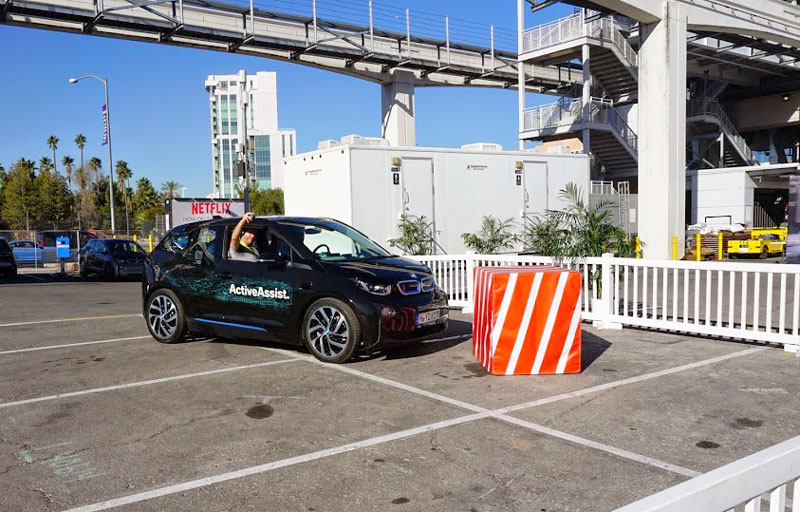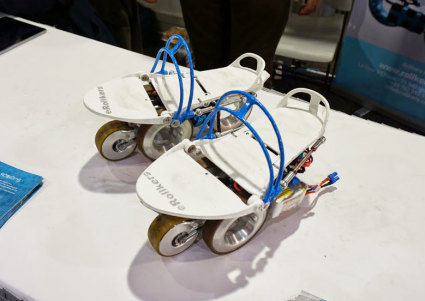
Robohub.org
Robocars at CES: BMW

A BMW stops on its own when the driver tries, full throttle, to drive it into the obstacle. It also won’t let you sideswipe obstacles. I have been in cars that do this before; this one seemed to stop more gently. Photo credit: Brad Templeton.
Day 3 at CES started with a visit to BMW’s demo. They were mostly test driving new cars like the i3 and M series cars, but for a demo, they made the i3 deliver itself along a planned corridor. It was a mostly stock i3 electric car with ultrasonic sensors — and the traffic jam assist disabled. When one test driver dropped off the car, they scanned it, and then a BMW staffer at the other end of a walled course used a watch interface to summon that car. It drove empty along the line waiting for test drives, and then a staffer got in to finish the drive to the parking spot where the test driver would actually get in, unfortunately.
Also on display were BMW’s collision avoidance systems in a much more equipped research car with LIDARs, Radar etc. This car has some nice collision avoidance. It has obstacle detection — the demo was to deliberately drive into an obstacle, but the vehicle hits the brakes for you. More gently than the Volvo I did this in a couple of years ago.
More novel is detection of objects you might hit from the side or back in low speed operations. If it looks like you might sideswipe or back into a parking column or another car, the vehicle hits the brakes on you (harder) to stop it from happening.
Insurers will like this — low speed collisions in parking lots are getting to be a much larger fraction of insurance claims. The high speed crashes get all the attention, but a lot of the payout is in low speed.

These roller skates capture energy in one part of your stroke and give it back to you in another lo let you go faster. Photo credit: Brad Templeton.
I concluded with a visit to my favourite section of CES — Eureka Park, where companies get small lower cost booths, with a focus on new technology. Also in the Sands were robotics, 3D printing, health, wearables and more — never enough time to see it all.
I have added 12 more photos to my gallery, with captions — check the last part out for notes on cool products I saw, from self-tightening belts and regenerating roller skates to phone-charging camping pots.
tags: Automotive, autonomous driving, BMW, c-Events, CES 2015, cx-Consumer-Household, robocars




